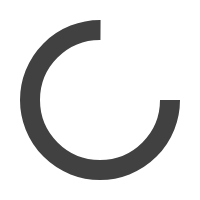We have been collaborating for over a decade with leading educational and healthcare institutions.
To this day, our devices are featured in the most published research in the field of photobiomodulation.
We have been collaborating for over a decade with leading educational and healthcare institutions.
To this day, our devices are featured in the most published research in the field of photobiomodulation.

clinical research participants
clinical research participants
clinical research participants

PBM protected neurons from cell loss induced by a low LPS dose (10 µg), which typically causes 15% neuronal death. At higher LPS doses (20 µg), PBM was less effective, leading to 50% neuronal death and increased inflammation in microglia. PBM also reduced the link between motor dysfunction and lesion…
2019, Department of Anatomy and Histology, Sydney Medical School, University of Sydney, NSW 2006, Australia
PBM therapy significantly improved executive functions, including clock drawing, immediate memory recall, practical memory, visual attention, and task-switching (Trails A & B).
2019, Quietmind Foundation, Elkins Park, Pennsylvania, USA
PBM using low-intensity red light significantly reduced cerebrovascular damage in MPTP-treated mice. After MPTP administration, blood-brain barrier leakage was detected in the substantia nigra pars compacta (SNc) and caudate-putamen (CPu). PBM treatment restored barrier integrity, with levels comparable to the saline-injected control group.
2019, Department of Physiology & Bosch Institute, University of Sydney, NSW 2006, Australia
PBM enhances brain metabolism, blood flow, mitochondrial function, and vascular health. Human studies indicate PBM improves cognitive functions such as attention, learning, memory, and mood in older adults.
2021, University of Texas, Department of Psychology and Institute for Neuroscience, USA
A review of 95 studies concluded PBM is widely applicable in treating: Stroke, Traumatic brain injury, Parkinson’s disease, Alzheimer’s disease, Major depressive disorder
2021, Shanghai Jiao Tong University, Shanghai, China
PBM may promote lymphatic drainage inside and outside the skull, suggesting a new strategy for treating cerebrospinal fluid-related brain diseases.
2022, School of Materials Science and Engineering, Hefei University of Technology, Hefei, China
Parkinson’s disease is a progressive neurodegenerative disorder with limited treatment options. The gut microbiome is a potential target for therapeutic intervention. This study retrospectively analyzed fecal samples from a previous trial where PBM improved symptoms. After 12 weeks of PBM applied to the abdomen, neck, head, and nose, researchers observed…
2022, School of Health Sciences, Australian Catholic University, North Sydney, NSW 2060, Australia
PBM therapy led to gut microbiome improvements in Parkinson’s patients. Most participants showed positive changes in the Firmicutes-to-Bacteroidetes (F:B) ratio, a key indicator of gut health.
2021, School of Health Sciences, Australian Catholic University, North Sydney, NSW 2060, Australia
PBM shows beneficial effects in patients with major depressive disorder, including those resistant to conventional or adjunctive treatments.
2023, Harvard Medical School, Massachusetts General Hospital, Department of Neuropsychiatry and Neuromodulation, USA
Optimal PBM wavelengths were identified as 665 nm and 810 nm. PBM had positive effects on cell survival, inflammation reduction, proliferation, and metabolism, especially when treatment was initiated within 4 hours post-injury and applied up to 3 times per day in localized cases.
2023, University of Birmingham, Institute of Inflammation and Ageing, Neuroscience and Ophthalmology, Edgbaston, Birmingham, UK ________________________________________
Recent research confirms that sleep activates the brain's waste clearance system, essential for removing neurotoxins from the central nervous system (CNS). This system is linked to Alzheimer’s and Parkinson’s disease. Researchers propose that stimulating this system with PBM during deep sleep could enhance CNS protection and delay the onset of…
2023, Humboldt University, Institute of Physics, Berlin, Germany
PBM is being studied for its potential to improve Alzheimer’s disease, Parkinson’s disease, epilepsy, traumatic brain injury (TBI), and stroke. Researchers suggest that PBM could provide a safer alternative to traditional pharmacological treatments.
2023, National Cheng Kung University & Academia Sinica, International Graduate Program in Interdisciplinary Neuroscience, Taipei, Taiwan
E-MAIL: info@huelight.kr I TEL : 02-898-2116 I HUE LIGHT CO., LTD SK Techno park E-1311. 60, Haan-ro, Gwangmyeong-si, Gyeonggi-do, Republic of Korea I Copyright 2024 © Hue Light Co., Ltd. All rights reserved
Disclaimer: The medical papers and academic information provided on this site are intended for educational purposes only and are not meant to diagnose, treat, prevent diseases, or substitute for a doctor’s advice.
Copyright 2024 © Hue Light Co., Ltd. All rights reserved
Disclaimer: The medical papers and academic information provided on this site are intended for educational purposes only and are not meant to diagnose, treat, prevent diseases, or substitute for a doctor’s advice.